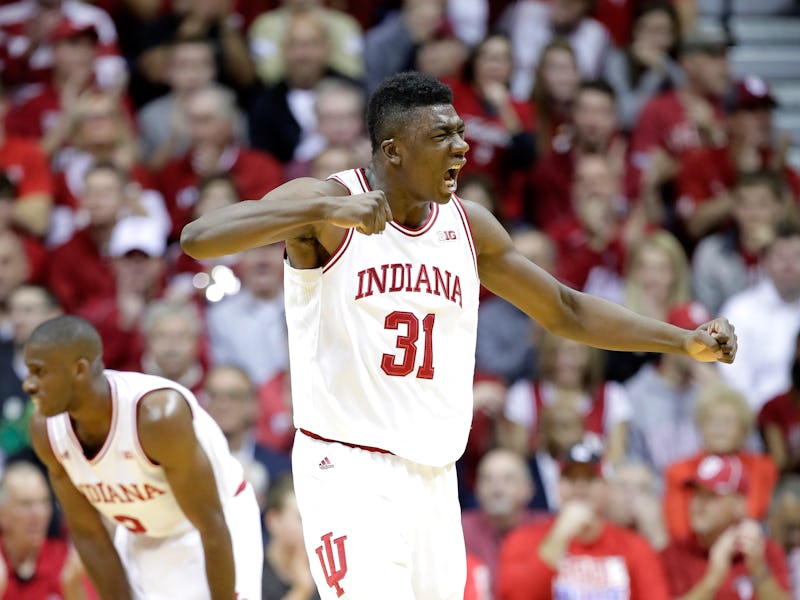UNC and Indiana’s Crazy-Loud Fans Might Screw Their Players

The University of North Carolina lost to Indiana University Wednesday night as part of the ACC-Big Ten Challenge. The 76 to 67 victory happened in front of a raucous, sold-out crowd at Bloomington’s Assembly Hall — a crowd so loud and so enthusiastic that even North Carolina’s coach couldn’t help but admire the Hoosiers: In a post-game interview, Roy Williams challenged North Carolina fans to step up, but he should have been more careful of what he asked for.
“We were not ready for the intensity, the enthusiasm, anything that you want to talk about in the first half,” Williams admitted to the News & Observer. “But it was a wonderful crowd. Gosh. I’d like to play in front of a crowd like that in the Smith Center every night other than the frickin’ Duke game.”
And while the North Carolina fan base isn’t necessarily known for being quiet, Indiana’s crowd is particularly loud: Wednesday night’s game reached a decibel level of 98. But whether or not a rowdier North Carolina fan base would do their team any good is debatable. Experts say a crowd’s size and intensity can be a wild card for a team’s performance.
On the positive side, loud crowds have been cited as one of the integral factors of the hometown advantage phenomenon. This typically has less to do with how the cheers affect the players and more to do with how cheering influences the calls of the referees. In a 2002 study on cheering at soccer games, a team of British researchers found that the noise of home team crowds influenced referees to make favorable decisions for the home team, especially when it came to giving out extra time and more moderate punishments. Other research says that cheering can be helpful in training players to perform better; in a rewards-based system, a team can tell how well they are doing by how much their fans love them.
But loud cheering can backfire. Research indicates that athletes feel increased pressure to win in front of their fans. This can lead to the release of the stress hormone cortisol, which can cause athletes to second-guess movements that come automatically to them and choke.
“Crowds are excellent for getting adrenaline pumping in an athlete,” sports psychologist Natalie Newton told The Los Angeles Times before the 2004 Olympics. “Unfortunately, adrenaline is the last chemical you want flooding your system in any finesse sport.”
The Hoosiers — who aren’t strangers to winning hometown games — most likely have become accustomed to the big cheers accompanying big wins. But a team that is used to playing in front of quieter crowds would probably need a gradual increase in cheering to actually perform well. Winning to a roaring crowd is great, but falling apart because of the pressure to win is less enticing.